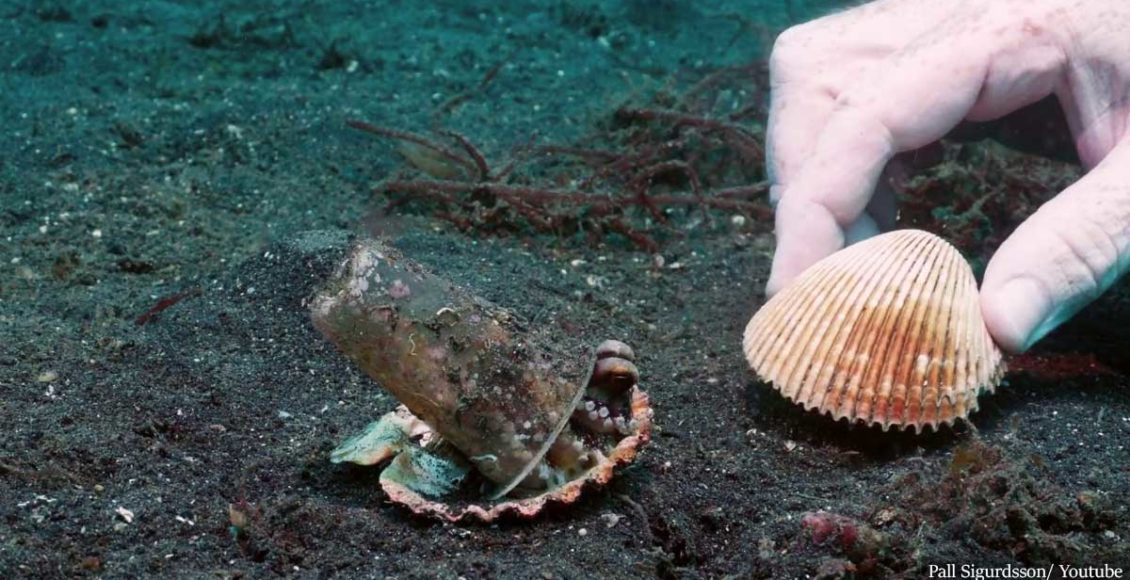A diver saved a baby coconut octopus from a “guaranteed death” due to a plastic cup.
- A man helped a baby octopus get rid of its plastic cup shield and change it with a real hard shell.
- The sea animal had several options to chose from until it finally picked a shell and moved in.
- The diver claims that the octopus could have a “cruel fate” if he and his team didn’t step in to save its life.
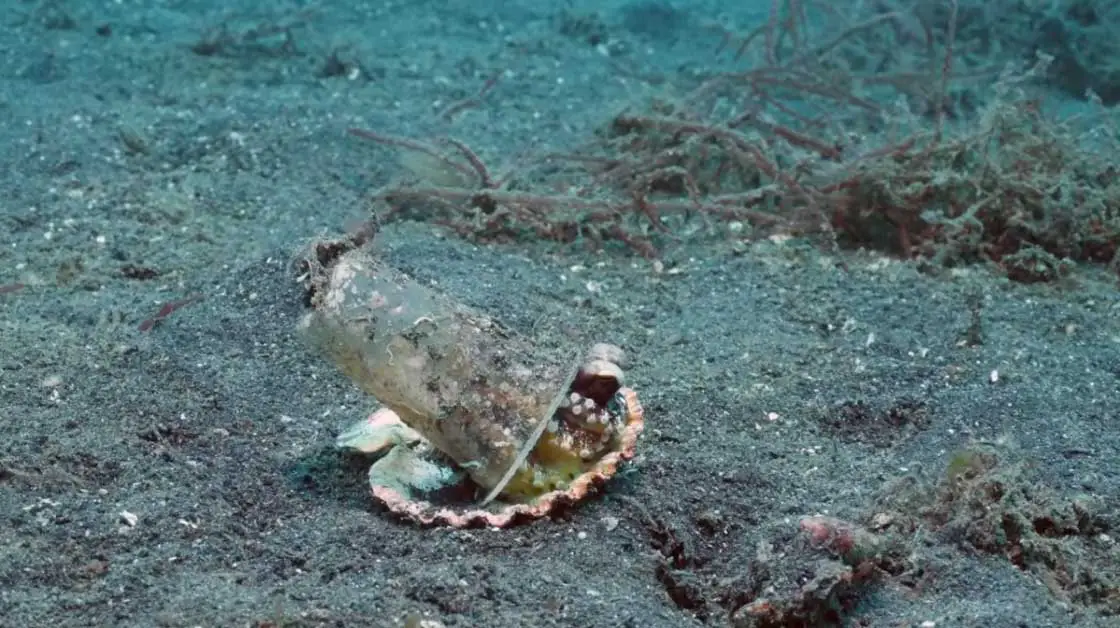
Pall Sigurdsson, a diving enthusiast from Iceland, saved a baby octopus on his trip to Lembeh, Indonesia. As per Elite Readers, one of the diver’s teammates found the struggling sea creature and asked him for help. The poor animal used a plastic cup to defend itself in the ocean. Sigurdsson said:
“It was our third dive that day, and we were all getting a little tired. My dive buddy sent me a hand signal saying that he found an octopus and asked me to come over for help.”
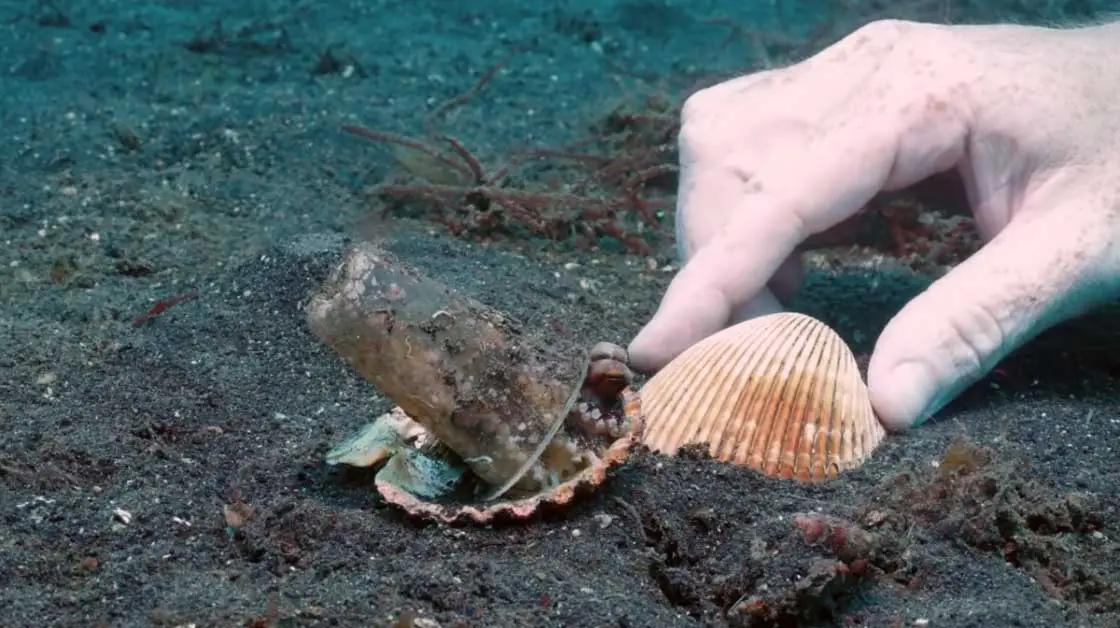
The unique thing about veined octopuses, also known as coconut octopuses, is that they have a special instinct to shield themselves from predators. These amazing creatures usually use aural materials, including coconut or clamshells, to protect themselves while moving into the waters of the ocean.
Unfortunately, due to marine pollution, the veined octopuses sometimes use other materials, such as plastic cups or empty containers. According to Sigurdsson, they are “clever animals,” but they are now struggling since litter has become “a permanent part of their environment.”
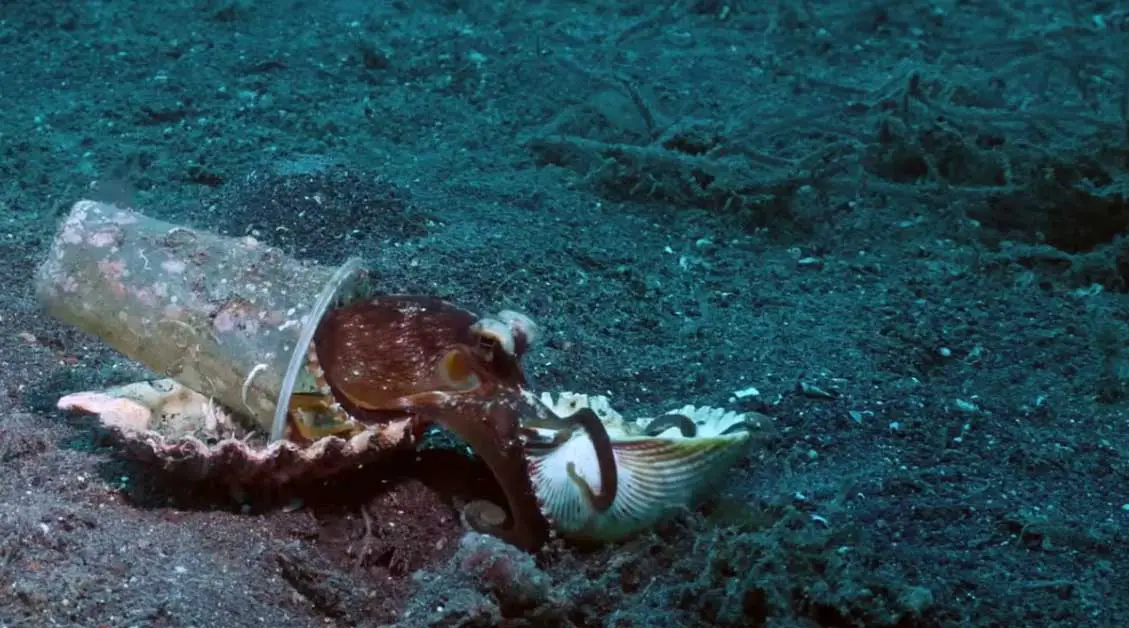
Thankfully, Pall and his team managed to save the innocent baby octopus.
The diver claimed that the plastic cup would have been a “guaranteed death sentence” if he and his team didn’t step in to save the animal.
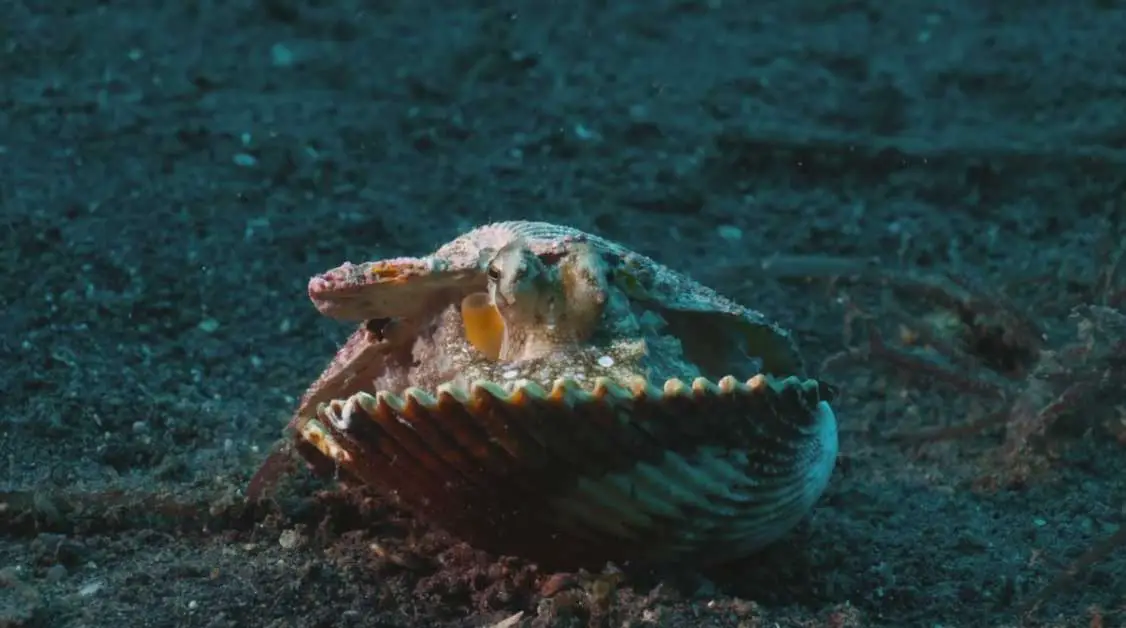
While interacting with the tiny octopus, the diver presented several beautiful shells that were more suitable than its plastic cover. Eventually, the sea creature picked one of them and got rid of its previous unreliable shield. Sigurdsson explained:
“We spent a whole dive and most of our air saving this octopus from what was bound to be a cruel fate. While a shell is a sturdy protection, a passing eel or flounder would probably swallow the cup with the octopus in it, most likely also killing the predator or weakening it to the point where it will be soon eaten by an even bigger fish.
We found this particular octopus at about 20 meters under the water, we tried for a long time to give it shells hoping that it would trade the shell. Coconut octopuses are famous for being very picky about which shells they keep so we had to try with many different shells before it found one to be acceptable.”


